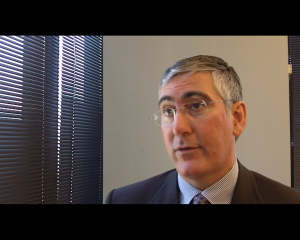In my last blog, I discussed what executives should take with them when they’re leaving their company. In this blog, we’ll go over something just as important: what they shouldn’t take with them.

VIDEO: Houston Executive Employment Attorney Joe Ahmad says if an executive takes phone numbers and other information when leaving the firm, his company will likely find out.
The short answer is, besides the employment documents you’ve signed (and with which you’ll be expected to comply), any awards or recognitions you’ve received, and personal items such as family photos, your snack stash, and your miniature putting green, pretty much everything else stays with your former employer.
Customer lists? Employee directory? Sales data? Internal marketing memos? Holiday card lists? Yes, yes, yes, yes and yes. It all stays behind. Don’t take hard copies with you, and definitely don’t download anything from your work computer to a zip drive or email those documents to yourself. Anything that could remotely be seen as confidential information needs to stay behind, and you’ll want to err on the side of caution when determining what is and isn’t confidential.
If it’s truly public information, then get it from a public source after you leave.
Companies are hyper vigilant these days about protecting their trade secrets and other confidential information, so it’s not unheard of for companies’ IT departments to scour a former executive’s computer, email and mobile phone to see if the executive (or any employee, for that matter) is attempting to take with them information they shouldn’t.
This also raises the issue of executives using company-owned computers, mobile phones and other company property for purposes of landing another job—or for anything they don’t want their employers to know about it (use your imagination). Misuse of company-owned property has come back to haunt more than a few executives, so, again, err on the side of caution. It could mean the difference between positive relations with your former colleagues and protracted litigation with them.
It should go without saying that retaining the services of an experienced executive employment lawyer is a smart step anytime you’re about to make a big move. A good lawyer will help you navigate the gray area between personal, professional, and confidential and help keep you out of hot water.
